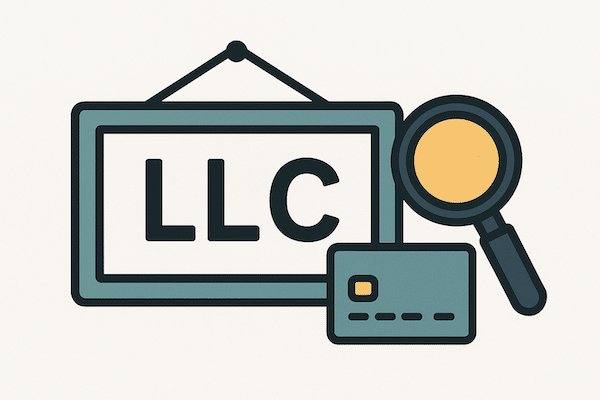What Is an LLC (and Is It Right for You)?

Starting a business is exciting. You’ve got ideas, energy, and maybe even customers waiting. But if you’re like most new entrepreneurs, there’s also a little voice in the back of your mind:
“What if something goes wrong? Could I lose everything I own?”
That’s where forming an LLC—short for Limited Liability Company—comes in. It’s one of the most common first steps for small business owners who want to protect themselves while keeping things simple. Let’s break down what an LLC really is, why it matters, and whether it’s the right move for you.
LLCs in Plain Language
At its core, an LLC is a legal structure that separates your business from you personally.
- If your LLC runs into debt or faces a lawsuit, your personal assets—like your house, car, or savings—are generally protected.
- You can form an LLC as a single owner (single-member LLC) or with partners (multi-member LLC).
Think of it as a protective shield. You’re still in control of your business, but the risks don’t automatically spill over into your personal life.
Why Entrepreneurs Choose LLCs
Many business owners pick the LLC structure because it offers the best of both worlds: protection and flexibility. Here are the biggest benefits:
- Liability protection – Your personal property isn’t automatically on the line if the business has debt or legal trouble.
- Tax flexibility – By default, profits “pass through” to you and are taxed as personal income. But you can also elect to be taxed as an S-corporation for potential savings.
- Professional credibility – Having “LLC” after your business name shows customers, partners, and banks that you’re serious.
- Less paperwork – LLCs generally require fewer ongoing formalities than corporations.
For many small business owners, these advantages make the LLC a natural fit.
The Drawbacks You Should Know
No structure is perfect, and LLCs do have trade-offs:
- Costs more than a sole proprietorship – You’ll need to pay state filing fees and sometimes annual report fees.
- Ongoing compliance – Most states require yearly paperwork and fees to keep your LLC in good standing.
- State-specific rules – LLC laws and costs vary, so forming one in Maryland looks different from forming one in California or Texas.
It’s important to go in with eyes open so you’re not surprised down the road.
When an LLC Makes Sense (and When It Doesn’t)
An LLC may be right for you if:
- You want to protect personal assets from business risks.
- You’re ready to separate business and personal finances.
- You see your business growing, hiring, or taking on bigger contracts.
It may not be necessary (yet) if:
- You’re just testing an idea with very little risk.
- You’re freelancing or side hustling with minimal liability exposure.
- The cost of forming and maintaining an LLC outweighs your current income.
Remember: choosing an LLC doesn’t have to be forever. You can start simple and upgrade later, or form an LLC now to give yourself peace of mind.
Final Thought
Forming an LLC is about more than paperwork. It’s about creating a sense of security, professionalism, and structure that supports your goals. For some entrepreneurs, it’s the right first step. For others, it’s a step they’ll take later. Either way, knowing your options helps you move forward with confidence.
Up Next: “Choosing the Right Name for your LLC” — because protecting your business starts with what you call it.

Responses